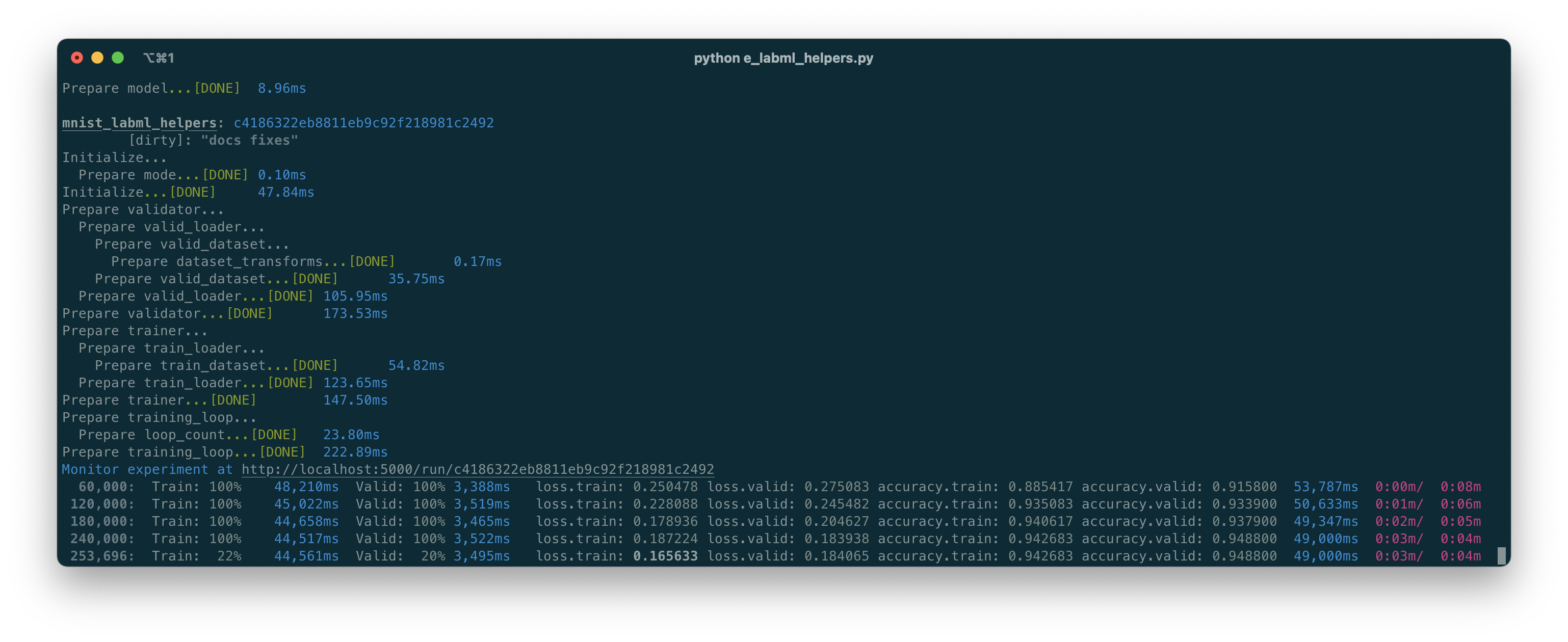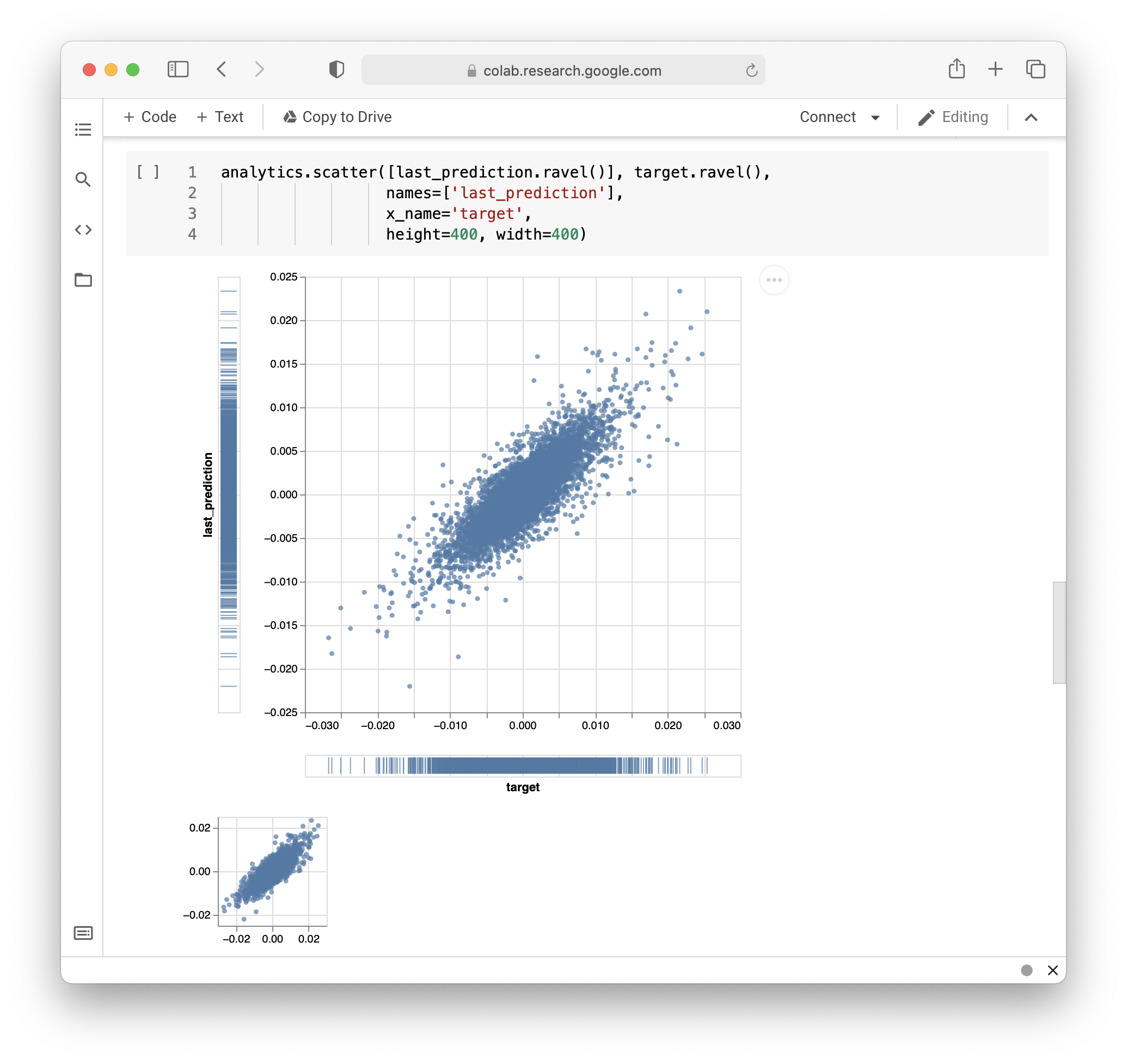Organize Machine Learning Experiments
Project description
🔥 Features
- Monitor running experiments from mobile phone (or laptop)
- Monitor hardware usage on any computer with a single command
- Integrate with just 2 lines of code (see examples below)
- Keeps track of experiments including infomation like git commit, configurations and hyper-parameters
- Keep Tensorboard logs organized
- Save and load checkpoints
- API for custom visualizations
- Pretty logs of training progress
- Change hyper-parameters while the model is training
- Open source! we also have a small hosted server for the mobile web app
Installation
You can install this package using PIP.
pip install labml
PyTorch example
from labml import tracker, experiment
with experiment.record(name='sample', exp_conf=conf):
for i in range(50):
loss, accuracy = train()
tracker.save(i, {'loss': loss, 'accuracy': accuracy})
PyTorch Lightning example
from labml import experiment
from labml.utils.lightening import LabMLLighteningLogger
trainer = pl.Trainer(gpus=1, max_epochs=5, progress_bar_refresh_rate=20, logger=LabMLLighteningLogger())
with experiment.record(name='sample', exp_conf=conf, disable_screen=True):
trainer.fit(model, data_loader)
TensorFlow 2.X Keras example
from labml import experiment
from labml.utils.keras import LabMLKerasCallback
with experiment.record(name='sample', exp_conf=conf):
for i in range(50):
model.fit(x_train, y_train, epochs=conf['epochs'], validation_data=(x_test, y_test),
callbacks=[LabMLKerasCallback()], verbose=None)
📚 Documentation
Guides
- API to create experiments
- Track training metrics
- Monitored training loop and other iterators
- API for custom visualizations
- Configurations management API
- Logger for stylized logging
🖥 Screenshots
Formatted training loop output

Custom visualizations based on Tensorboard logs

Tools
Hosting your own experiments server
# Install the package
pip install labml-app
# Start the server
labml app-server
Training models on cloud
# Install the package
pip install labml_remote
# Initialize the project
labml_remote init
# Add cloud server(s) to .remote/configs.yaml
# Prepare the remote server(s)
labml_remote prepare
# Start a PyTorch distributed training job
labml_remote helper-torch-launch --cmd 'train.py' --nproc-per-node 2 --env GLOO_SOCKET_IFNAME enp1s0
Monitoring hardware usage
# Install packages and dependencies
pip install labml psutil py3nvml
# Start monitoring
labml monitor
Other Guides
Setting up a local Ubuntu workstation for deep learning
Setting up a local cloud computer for deep learning
Citing
If you use LabML for academic research, please cite the library using the following BibTeX entry.
@misc{labml,
author = {Varuna Jayasiri, Nipun Wijerathne},
title = {labml.ai: A library to organize machine learning experiments},
year = {2020},
url = {https://labml.ai/},
}
Project details
Release history Release notifications | RSS feed
Download files
Download the file for your platform. If you're not sure which to choose, learn more about installing packages.
Source Distribution
labml-0.4.143.tar.gz
(85.9 kB
view hashes)
Built Distribution
labml-0.4.143-py3-none-any.whl
(124.7 kB
view hashes)



















